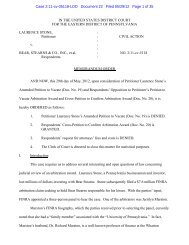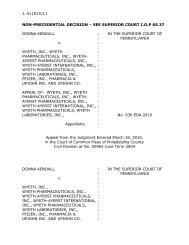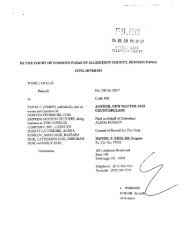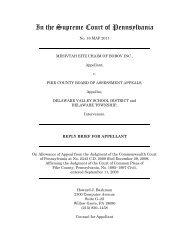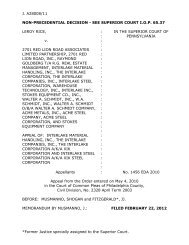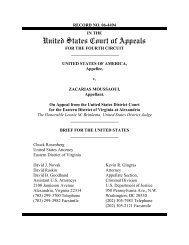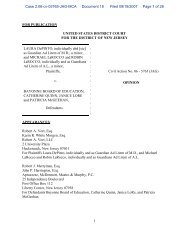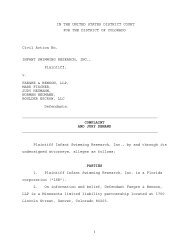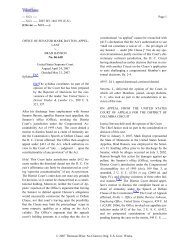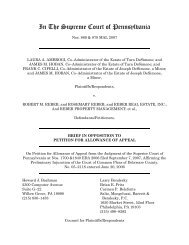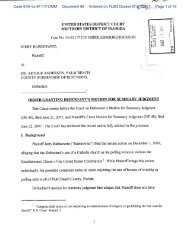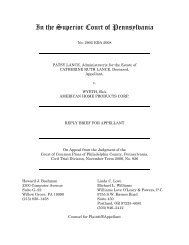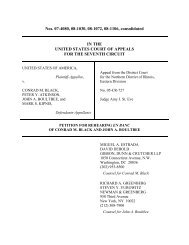In the Superior Court of Pennsylvania - How Appealing
In the Superior Court of Pennsylvania - How Appealing
In the Superior Court of Pennsylvania - How Appealing
You also want an ePaper? Increase the reach of your titles
YUMPU automatically turns print PDFs into web optimized ePapers that Google loves.
specifically recall any conversation he had with Mrs. Hess at <strong>the</strong> time <strong>of</strong> her cancer<br />
diagnosis. Yet, he continues: “Had she asked me in April <strong>of</strong> 2002 whe<strong>the</strong>r her<br />
hormone <strong>the</strong>rapy caused her cancer, I would have told her that I did not know.”<br />
R.3645a.<br />
Ms. Blaylock testified that “My doctor never told me that <strong>the</strong> HRT caused <strong>the</strong><br />
tumor in <strong>the</strong> first place. The first time I became aware that <strong>the</strong> HRT was an actual<br />
cause <strong>of</strong> my breast cancer was after <strong>the</strong> Women’s Health <strong>In</strong>itiative report was<br />
released in July <strong>of</strong> 2002.” R.2924a. Mrs. Medwid testified that she was not told at<br />
<strong>the</strong> time <strong>of</strong> her diagnosis that her breast cancer was caused by hormone <strong>the</strong>rapy<br />
medications and that she did not learn that “Prempro could have been a cause <strong>of</strong> my<br />
breast cancer” until after July 9, 2002. R.1337a–38a. The evidence concerning <strong>the</strong><br />
o<strong>the</strong>r plaintiffs shows <strong>the</strong> same.<br />
<strong>In</strong> addition, <strong>the</strong> information defendants expressly designed to reach <strong>the</strong><br />
plaintiffs and <strong>the</strong>ir doctors — defendants’ packaging inserts and product labels —<br />
told a far different story than <strong>the</strong> one defendants now attempt to embellish with<br />
bits and pieces <strong>of</strong> publications over a five–year period. During that same five–year<br />
period, defendants continued to tell plaintiffs, and <strong>the</strong> world, that:<br />
• The majority <strong>of</strong> studies show no breast cancer risk from any use<br />
<strong>of</strong> estrogen;<br />
• The only studies showing a risk involved estrogen use at high<br />
doses or for long duration (10 years or more);<br />
• The effect <strong>of</strong> adding progestins to estrogen was unknown;<br />
• Some studies suggest adding progestins has no effect on <strong>the</strong> risk<br />
from estrogen, if any; and<br />
– 31 –



